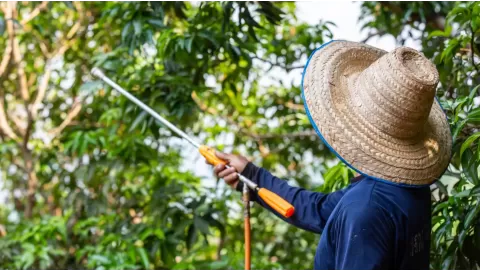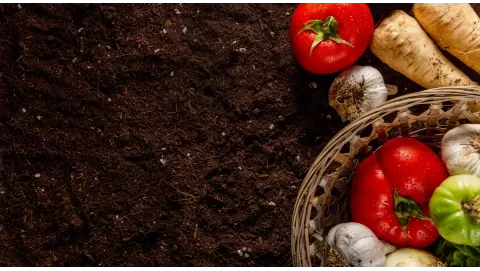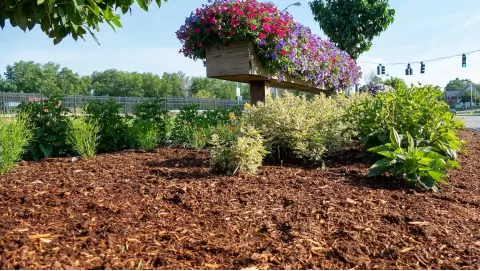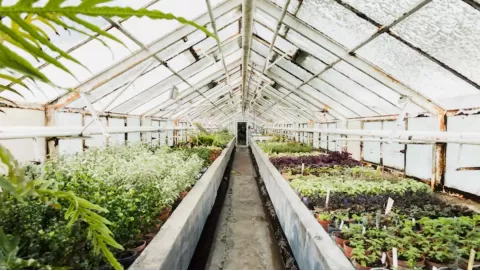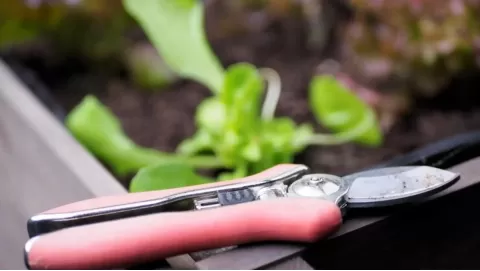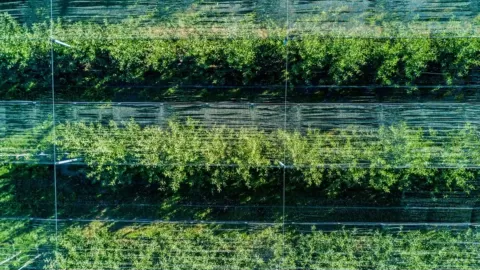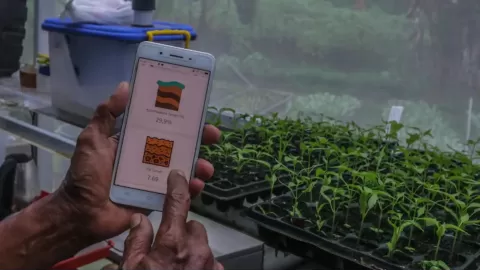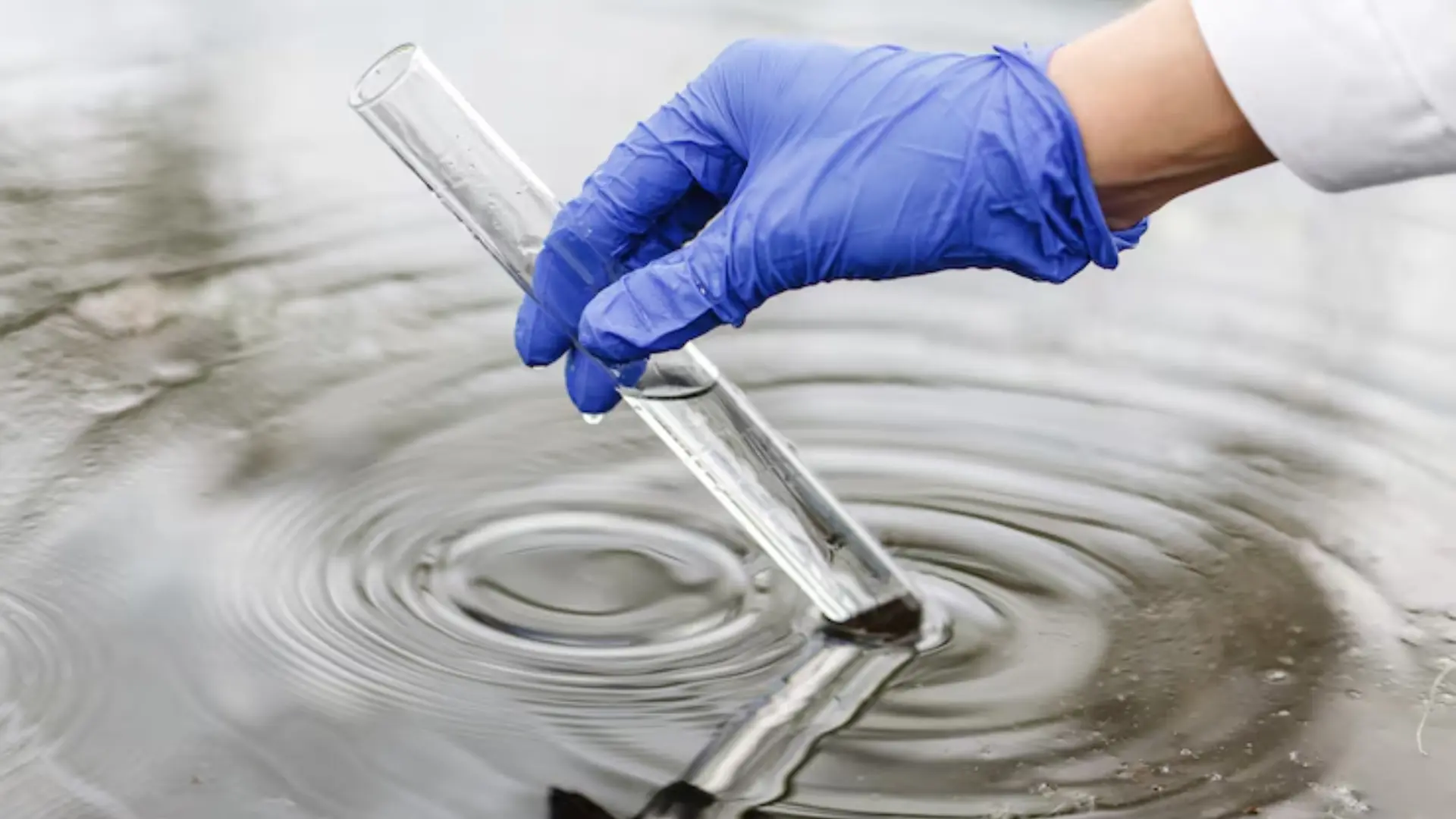
Precision Water Filtration: How Advanced Systems Optimize Agriculture
When was the last time you considered the quality of the water that feeds your crops, or the tubes that zip samples throughout your facility? Probably never… unless you’ve seen the horrors of blocked-up filters or a rogue tomato in a pneumatic tube system.
- What: Agriculture and food processing are evolving with the integration of pneumatic tube transport systems and advanced water filtration technologies. Reverse osmosis systems and automated material handling contribute to cleaner water, streamlined workflows, and scalable, sanitary operations, resulting in higher plant health and productivity.
- Ideal For: Growers, processors, and facility managers aiming to improve water quality, optimize operations, increase safety, and meet regulatory standards in hydroponics, greenhouses, and food-grade environments.
- Key Players:
- Reverse Osmosis Superstore: Customizable RO systems that remove up to 99.9% of contaminants for hydroponics, irrigation, and processing.
- Kelly Tube Systems: Experts in pneumatic tube transport, offering contamination-free, cost-effective material handling for labs, greenhouses, and production facilities.
- Pro Tip: Maintain integrated water purification stages alongside automated transport solutions to reduce labor, eliminate contamination, and maximize ROI in both agricultural and processing environments.
In modern agriculture and food processing, having clean water and efficient systems is essential for success and growth, not just trendy ideas. Indeed, even if you have the best seeds here to grow lettuce or the most sophisticated ops, high-quality seeds won’t even germinate if you have a system clogged with impurities or outdated systems. This is why new technologies and solutions are so critical.

Technology is changing how humans grow, process, and transport agricultural products, trading in guesswork and sweat for precision and automated systems. Other engineer-driven solutions steering this technology-heavy switch include Reverse Osmosis Superstore, which (as the name suggests) delivers rigid filtration systems that take out up to 99.9% of toxic matter in your water, and Kelly Tube Systems, which designs pneumatic transportation systems to propel what you are shipping to you quicker than your morning coffee.
The Role of Water in Agricultural and Processing Environments
Water is not a supporting act in agriculture and processing; water is the headliner. Whether you’re using a high-tech hydroponic setup to grow lettuce or bottling your farm’s artisan goat cheese, the quality of water makes or breaks the operation.
In irrigation systems, clean water keeps plants getting nutrients without the baggage, like salts or pathogens. That’s even more important for hydroponics. For watering, when water is the medium, not merely the supplement, any contamination is a direct attack on the health of your plants.
Dirty water can cause health problems, reduced milk or meat production, and cranky cows (no one wants that). In food and beverage processing, water is involved throughout a facility, from sanitation systems to the product itself. Using a high-quality filter is essential to protect your system from bacteria, chlorine, odor, and rust, while maintaining optimal pressure and ensuring your pump operates efficiently in agricultural water treatment systems.
Ignoring water quality can lead to catastrophe. Reduced crop yields, food safety concerns, and costly equipment failures are just the start. Want to deal with a regulatory fine because of bacteria-laden rinse water? Neither do we. Clean water is not a convenience; it is a necessity, an insurance policy for productivity and peace of mind.
Understanding Precision Water Filtration
Precision water treatment is sort of like giving your water a backstage pass: only the cleanest, most up-to-snuff elements make it into your glass. Not removing all the “bad stuff,” but customizing the filtration for your farm, facility, or greenhouse, using the appropriate materials, from oil-manufactured cartridge filters, to tough tubing, to corrosion-resistant gas filtration parts.
For precision systems, reaching the right dial is everything, targeting heavy metals pulled from drinking water, sediments removed from irrigation lines, and chlorine drawn from processing water. It’s as if you’d hired a bouncer with chemistry savvy to watch your water supply—someone who can block acid, bacteria, and other contaminants from entering.

These systems go after a rogues’ gallery of undesired foes: the likes of fluoride, chlorine, iron, sulfur, bacteria, sediment, and even those invisible villains, heavy metals. If it has no business being near your produce, your equipment, or your animals, out it goes.
Solutions vary as widely as the challenges. Molecular-level purification is achieved through high-performance filters (reverse osmosis cartridge membranes, for example). Softeners remove hard minerals that clog up your tubing and pumps. Iron and sulfur are addressed with air injection. And carbon filters zap away chlorine, VOCs, and anything that carries an unpleasant smell or taste.
This is not an every-solution-fits-all situation, and that’s a positive thing. By building a functional and secure water filtration system to suit your needs, you provide your customers and crops with clean water, from the point of entry to every drop.
How Reverse Osmosis Systems Improve Water Quality
Reverse Osmosis (RO) is like a personal trainer for your water — it expels the bad and leaves only the good, almost none of the bad, behind. The science? Simple, yet brilliant. Water is pushed through a semi-permeable membrane where the bad guys like heavy metals, bacteria, chlorine, and others are filtered out as the good stuff passes through (good stuff being clean H₂O).
Whether you run a commercial greenhouse or a food processing line, Reverse Osmosis Systems provide scalable, extremely effective filtration.
Key benefits of Reverse Osmosis systems include:
- Superior Contaminant Removal: The filtration system will remove the likes of iron, chlorine, bacteria, and other harmful dissolved chemicals that can inhibit plant growth and contaminate the product
- Scalability: These systems fit small operations and large agricultural installations alike, with production capabilities from 200 to more than 20,000 gallons a day.
- Versatility: RO systems work with tap, brackish, and even seawater, so they can be used in lots of different environments and with varying types of water.
- Comprehensive Support: Expert consultation, financing options, and tech support available on demand to ensure that growers and processors get what they want, when they need it, from Reverse Osmosis.
Products like the Fully-Loaded Commercial RO Systems (1000–8000 GPD) are meant for permanent water supply.
If you are in any way concerned with safe drinking water, irrigation of plants, or the longevity of your equipment, Reverse Osmosis solutions provide clarity and consistency that is simply the best.
Efficiency and Safety with Pneumatic Tube Systems
The phrase “pneumatic tubes” makes you think of bank drive-thrus; think again. Behind the scenes, they’re reshaping efficiency and hygiene in modern ag and processing settings.
Pneumatic tube systems move small things, such as lab samples, documents, or even parts, between departments by using pressurized air. It’s kind of a teleportation upgrade for your facility, no foot traffic, no paperwork, and no room for human error (or spilled samples at aisle five).
In farming and processing, timing is everything — and so is contamination. Less handling means you aren’t just speeding things up. You’re minimizing cross-contamination risk, enhancing biosecurity, and making sure your team isn’t doing errands instead of high-value work.
From livestock labs to food safety departments, these systems do the heavy lifting (literally) behind the scenes. The result? Streamlined workflows, faster diagnostics, and safer processing environments. And it’s an intelligent infrastructure with a great ROI.
Automated Efficiency with Kelly Tube Systems
While Reverse Osmosis handles the purity of the water, Kelly Tube Systems is changing the way your materials move within agricultural processing facilities. These Pneumatic Tube Systems (PTS), originally designed over a century ago, are now powering the next generation of smart agricultural logistics.
Envision the immediate transfer of lab samples, documents, or light materials throughout a sprawling facility without human-handling delays. Kelly Tube Systems makes that a reality.
How Kelly Tube Systems Boost Agri-Processing:
- Speed and Reliability: Streamline your moves of material by automating transfers you can count on, safely with easy, repeatable moves: great for processing plants, testing labs, or greenhouses.
- Sanitation: PTS reduces human contact, making them essential in food-grade or pharma-style environments.
- Efficiency: Integrate tube systems into your existing workflows to minimize downtime and maximize productivity.
- Industry 4.0 Ready: As agriculture enters the 4th industrial phase, where everything is preserved in digital, automated farms, it is pioneering mart integrations to ensure optimal processes are followed.
From food production lines to research laboratories that are integrated with growing operations, pneumatic tubes offer a silent but forceful increase in everyday logistics.
Integrated Water and Material Management for Maximum ROI
That is, like a symphony, a multidimensional compensation structure. An orchestra of clean water and intelligent transport systems drives productivity to new heights.
Combining reverse osmosis filtration systems with pneumatic tube systems (PTS) isn’t merely a tech flex; it’s a strategic move. Good water makes sure that crops are healthy and processes are maintained clean. At the same time, PTS reduces the time and the costs of transport of the samples, pieces, and data within the facility.

Such an integration cuts the cost of labor, enhances regulatory compliance, and generates consistent, high-quality output. It's like hiring an invisible team of ultra-fast, hyper-clean assistants who people don’t need to pay a salary.
The advantages are crystal clear across sectors. Water security and material handling in greenhouses and food and beverage plants ensure smarter workflows and better margins.
Custom Solutions for Every Operation
One-size-fits-all? At least not when it comes to liquid filtration. Every operation has its own water sources, with its own signature contaminants — iron, sulfur, heavy metals, bacteria… the list goes on.
That’s why custom solutions are so important. Your filtration system must correspond to your unique problems, whether you’re extracting from a well, a municipal source, or recycling water. Whether you're under-sizing or overcomplicating your entire setup, you can rack up a bill in terms of both money and performance.
Enter the experts. Designing, sizing, and installing the appropriate system is not a do-it-yourself weekend project. Professionals make sure every valve, membrane, and micron rating is compatible with your flow rate and filtration goals. The result? That means cleaner water, longer equipment life, and better returns.
Connection Between Filtration and Flow: A New Standard for Agriculture
In the world of modern agriculture, it’s not enough to just water plants — you need to be smart about how you do it. A new gold standard of success now includes clean water that flows efficiently.
Imagine this: your crops are irrigated or your hydroponics powered by RO-grade filtered water. Meanwhile, your lab samples or system diagnostics are whizzing through a pneumatic tube system to your quality control team. Seamless. Sanitized. Super-efficient.

This pairing doesn’t just look good on paper; it has real-world rewards. Leading to lower operating costs, fewer crop problems, faster lab results, and huge improvements in sustainability performance.
As smart farms rise and water use becomes increasingly data-driven, material flow is becoming ever more automated and integrated in their operations. Imagine systems communicating with each other—detecting problems, self-adjusting flow rates, logging performance metrics—all in real time.
Welcome to the future of ag. It’s flowing better already.
FAQs
Q: What is the importance of water filtration in agriculture and food processing?
Water quality is directly related to plant health, livestock well-being, and product safety. Bad water can harbor impurities that depress crop yields, damage machinery, or undermine food safety. Filtration gets rid of harmful elements, including chlorine, heavy metals, and bacteria, enabling optimal performance across the board.
Q: How is reverse osmosis superior to other water filtration systems?
Since reverse osmosis does molecular-level filtration to remove 99.9% of contaminants, this is one of the best solutions for consistent water quality in hydroponics, greenhouse irrigation, and food processing environments where purity can’t be compromised.
Q: Are pneumatic tube systems hard to implement in agricultural facilities? Not at all. When working with pneumatic tube systems, such as those offered by Kelly Tube Systems, it is essential to think about how this device will fit into current procedures. They cut labor, enhance sanitation, and increase efficiency virtually overnight with expert installation and smart routing.
Conclusion
Clean water and smooth flow are not a nice-to-have; they are a must-have. It’s the future of excellence in agriculture and processing. Combining leading water filtration solutions, such as Reverse Osmosis Superstore, with cutting-edge material handling solutions like Kelly Tube Systems delivers a measurable, competitive advantage. Lower costs, greater efficiency, and improved quality control aren't just goals; they're everyday wins.
Whether you’re growing microgreens, raising livestock, or producing gourmet yogurt, precision water and simplified logistics are your secret weapons in a growing field of competitors.
Disclaimer: This material is for informational purposes only and should not be relied on for legal, medical, financial, or any other form of professional advice.
Sources:
Science Direct - Water for Agricultural Use
Online Master of Science in Engineering - What Are Advanced Water Treatment Processes?





